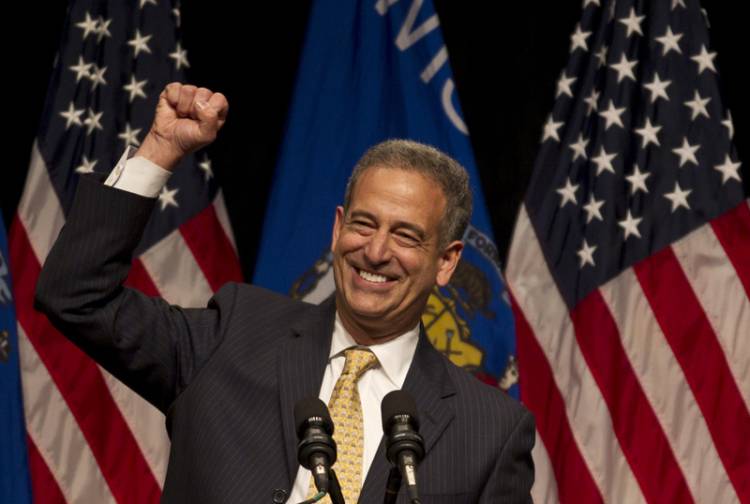The question isn’t really if Scott Walker and his fellow Wisconsin Republicans will suffer fallout from their surprise maneuver Wednesday night. It’s how severe the fallout will be.
Walker and the state’s Republican senators, as you’ve surely heard by now, decoupled their proposal to strip public workers of their collective bargaining rights from a budget bill, allowing them to push it through the upper chamber with the entire Democratic caucus still holed up across state lines in Illinois. The GOP-controlled Assembly will presumably pass the bill today and Walker will then sign it.
Politically, this represents a wholly reckless move. Wisconsin’s state government has been paralyzed for weeks because of the collective bargaining impasse, and in that time public opinion swung sharply against Walker and his plan. All of the noise generated by the Democrats’ resistance seemed to have convinced a majority that Walker’s plan is out of the mainstream. That these same voters will now hear that Walker and the GOP resorted to an extraordinary measure to jam it through will only harden this assessment — and, potentially, make GOP legislators and the governor himself vulnerable to recall efforts.
The recall campaign will first target the handful of Republican senators who have already been in office for a year and are therefore eligible to be recalled. Petitions are already circulating in their districts. Walker himself is insulated through next January, when his first full year in office will be complete. Only then will his opponents be able to take out petitions to recall him. But that hasn’t stopped more than a few Democrats from promoting their dream recall candidate: Russ Feingold, the former three-term senator who was flushed from office in last fall’s anti-Democratic tide.
Feingold has played a visible role in the fight against Walker’s plan, and issued a statement after last night’s Senate vote that seemed to endorse the recall push. As I’ve written before, the breadth of Feingold’s popularity in his state was something national observers tended to overstate. He never broke 55 percent in any of his three winning campaigns. But when it comes to the Democratic base, his appeal is deep and abiding. And in the right climate — in other words, the current climate in Wisconsin — he’s certainly capable of winning a general election as the Democratic nominee.
He wouldn’t be the first defeated senator to stage a quick comeback as a gubernatorial candidate. Lincoln Chafee, ousted by Rhode Islanders in 2006, just won that state’s governorship as an independent last fall. Lowell Weicker, vanquished by Joe Lieberman in 1988, pulled off the same feat in Connecticut two years later. Feingold shares a quirky maverick streak with both of those men. It’s not that hard to see him following in their footsteps.
But will he get a chance next year? That’s harder to see, mainly because Wisconsin appears to have one of the more onerous recall procedures when it comes to governors: Petitioners would need to gather signatures equivalent to 25 percent of the total number of votes cast in the previous statewide election, and they’d have only 60 days to do it. By contrast, California (where Gov. Gray Davis was successfully recalled in 2003) requires signatures equivalent to only 12 percent of the votes cast in the previous election, with a 160-day window.
It also remains to be seen how long the anger will last in Wisconsin. I’m reminded of the example of Jim Florio, the New Jersey governor who set off an unprecedented tax revolt in the summer of 1990 and saw his approval rating slip to 15 percent in some surveys. It took a while, but eventually his numbers climbed back up to nearly 50 percent — high enough that he came within a fraction of a point of winning reelection in 1993 (and that it was considered an upset that he fell short). Walker’s numbers may nose-dive now, but let’s see where he’s sitting a year from now — and how big the issue still is to Wisconsin voters. The signature requirement seems very high.
Of course, even if talk of recalling Walker never amounts to much, there’ll still be 2014, when his term will expire anyway. Feingold would presumably be just as viable an option for Democrats then as he is now.


